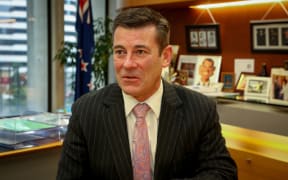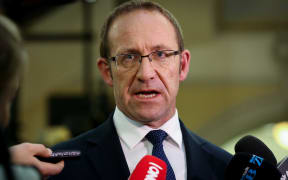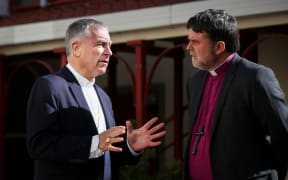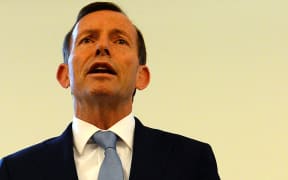Chancellor Angela Merkel has said the "breathtaking" flow of refugees into Germany will "occupy and change" the country in the coming years.
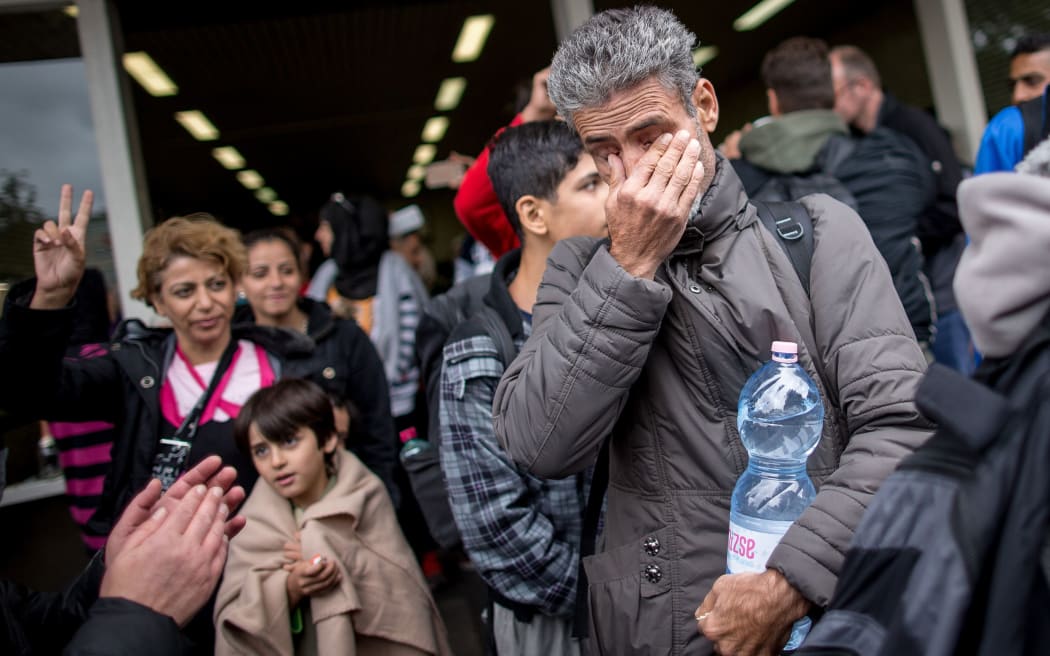
A refugee cries as he arrives at the main station in Dortmund, western Germany. Photo: AFP
She said Germany would speed up asylum procedures and build extra housing, but called on other EU states to help.
French President Francois Hollande said quotas for EU countries to relocate 120,000 refugees or migrants were being planned and that France would take 24,000.
Meanwhile, the flow of refugees across Europe shows no sign of easing. On Monday, large numbers of people were reported to be streaming into Hungary across its southern border with Serbia.
In other developments:
- The UK will accept up to 20,000 refugees from Syria over the next five years, David Cameron has told MPs
- Greece has requested emergency EU assistance to deal with refugees or migrants arriving from Turkey
- Spanish media say police fired rubber bullets at refugees or migrants in a detention centre in Valencia after about 50 tried to escape
- Police in Macedonia scuffled with thousands of refugees or migrants trying to cross into the country from Greece
- Hundreds of refugees or migrants broke through Hungarian police lines on the border with Serbia and are marching towards Budapest
- UN chief Ban Ki-moon, in an interview with the Guardian, said the UN Security Council was failing Syria because it was divided on the issue
Thousands of refugees who had arrived in Hungary made their way through Austria to Germany over the weekend. Those arriving at Munich station were cheered by locals.
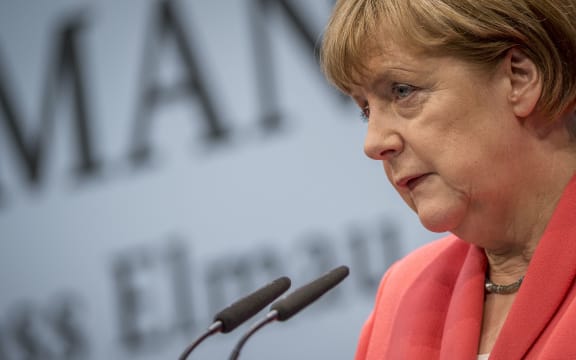
Angela Merkel (file) Photo: AFP
Mrs Merkel thanked volunteers who had helped and welcomed those arriving, saying they had "painted a picture of Germany which can make us proud of our country".
However, she said that although Germany was "a country willing to take people in", it was "time for the European Union to pull its weight".
Germany - which expects 800,000 asylum requests this year - could face costs of €10 billion next year because of the influx, she added. About 18,000 people arrived in Germany over the weekend.
New quotas drawn up by the European Commission are set to be unveiled on Wednesday.
Spanish newspaper El Pais reported on Monday that a total of 160,000 refugees would be resettled, including 66,000 who have arrived in Greece, 54,000 in Hungary and 40,000 in Italy.
Hungary had previously blocked refugees travelling to Western Europe, but dropped restrictions on Friday after struggling to cope with thousands camping in its capital, Budapest.
In a separate development on Monday, Hungary's Defence Minister Csaba Hende announced his resignation. While it is not immediately clear why, some reports suggest it may be related to a delay in finishing work on a fence along Hungary's border with Serbia.
Speaking on Monday, Hungarian Prime Minister Viktor Orban said "as long as we can't defend Europe's outer borders, it is not worth talking about how many people we can take in".
Those refugees trying to reach Germany were seeking a "German life" rather than physical safety, he said, adding that if the stream continued it would endanger Europe's "Christian welfare states".
The Hungarian parliament last week passed tough new legislation on illegal immigrants.
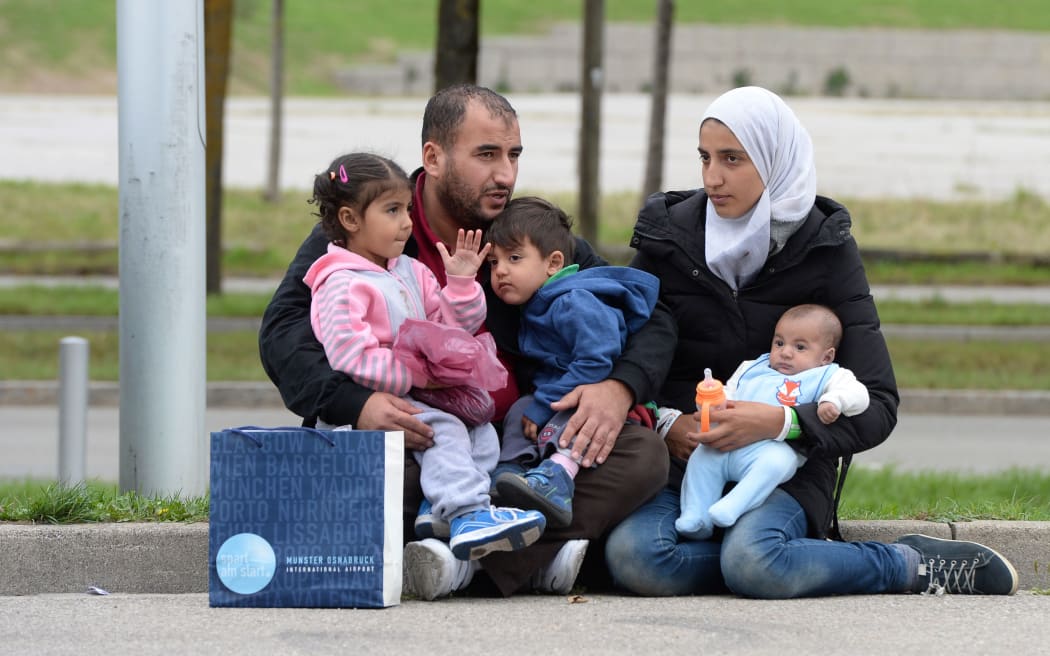
A refugee family from Syria waits in front of a exhibition hall at the Munich fairground that serves as makeshift shelter for migrants. Photo: AFP
Mrs Merkel has become a hero to many refugees for allowing large numbers to cross into the country from Hungary. But the Bavarian Christian Social Union, a sister party to Mrs Merkel's Christian Democrats, have accused the chancellor of sending a "totally wrong signal".
On Sunday night, there were two fires at accommodation centres for asylum seekers in Germany, with police confirming that one was "politically motivated arson".
